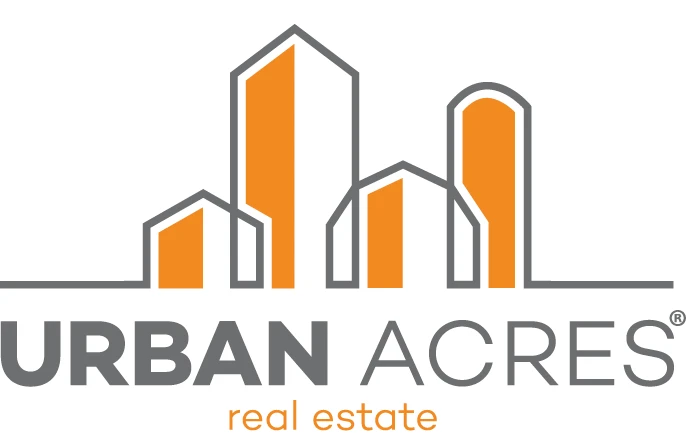Buying or selling a home is something most of us only do once every 5, 10, or 15 years. It’s also one of the biggest personal and financial decisions you make in your lifetime, making it all the more daunting. Because many people go years between buying and selling, they’re often unfamiliar with the process, putting them at risk for some common pitfalls that tend to befall buyers and sellers.
Here are a few dos and don’ts to help you avoid these common mistakes—saving you time, money, and headache and setting you up for a successful home buying or selling journey!
Home Buying Dos and Don’ts
DO get pre-approved for a loan before you start your search.
Before you start searching for a home, you need to know what you can afford. No buyer wants to fall in love with a home outside of their price range, only to realize they can’t afford it.
Getting pre-approved also helps streamline the closing process once you do find a home you love. Having a physical copy of your pre-approval letter in hand shows the seller that you are serious about the home and able to follow through. Waiting to get approved until after you’ve found a home you love puts you at risk of losing that home to another buyer before you can get approved, especially in a fast-moving seller’s market.
Learn more about how to get pre-approved for a mortgage.

DO use a locally-based lender.
Knowledge of the area is key for nearly every aspect of the home buying process. A locally-based lender has insight on the area market; they know local processes and systems inside and out and are therefore better-suited to solve any issues that could arise than, say, a national lender. Plus, REALTORS® have established relationships with local lenders, which allows for easier lines of communication and better problem solving.
DO use a REALTOR®.
And we aren’t just saying this because we are REALTORS®! The simple truth is that most people don’t buy (or sell) a home every day. REALTORS® do. We know what’s normal, what isn’t, and how to solve problems or who to call to get answers. We know the process, where things can get stuck, and how to unstick them. We manage the process from start to finish and beyond, and we’ll always remain a contact for you if you have questions about your new home or are looking for the paperwork from when you sold your home.
Even better? As a buyer, the help of your agent is free. Many buyers—especially first-time homebuyers—don’t realize that the seller pays the agent’s commission, not the buyer. (FSBO—for sale by owner—properties are one of the few possible exceptions to this rule). Thus, as a buyer, the question isn’t so much “Why use an agent?” as “Which agent?”
In search of an agent to start your home buying journey? Check out our team of 50+ Urban Acres agents!
DO vet your agent carefully.
Your REALTOR® will be a strong guiding factor in your home purchase, which is arguably one of the biggest decisions you’ll ever make (and one of the largest transactions!). It’s important to make sure you choose the right guide for this crucial journey. Here’s a few tips on how to find the right real estate agent for you.
DO connect with an agent early and communicate openly.
While we agents are used to hitting the ground running in time-sensitive home searches and sales, it’s ideal to get us involved as early as possible in the process. That way we can help guide you from the very beginning, from recommending a lender for your pre-approval to narrowing down listings to find exactly what you are looking for.
It’s also important to be honest with your agent about your needs and wants (two very different things!), things you do and don’t like about the homes you visit, and your timeline. Holding back information and opinions will only slow down the process. Trustworthiness, honesty, and open lines of communication (from both you and your agent) is a great recipe for a successful real estate transaction.
If you see a home you like and want a showing, DON’T call the listing agent if you already have an agent of your own.
Whether you’re searching online or see a home you like when you’re out and about, be sure to contact your agent when you find a home you’d like to take a closer look at. While your first instinct may be to call the listing agent yourself, that’s something you can (and should) let your agent handle. They will work with the listing agent to set up the showing. In other words, when in doubt, funnel all things through your agent—that’s what we are here for! Liaison is our middle name.
DO consider the home’s resale value.
This is especially important if you don’t plan on this being your forever home. It may seem silly to think about selling a home you’re still in the process of buying, but it’s a smart thing to consider for your financial future. Take into account factors like age, condition, size, location and neighborhood, and any updates you plan to make to the home. Ask your Urban Acres agent for their opinion, too!
DON’T skip a professional inspection.
Waiving the home inspection may seem like a good idea to expedite the closing process, but it’s something your agent would never recommend. Skipping the inspection often means letting major and minor issues go undetected. As a new homeowner, the last thing you want is to discover potentially costly issues—such as a cracked foundation, poorly insulated walls, a roof in need of repair, and so on—after it’s too late.
Forgoing the inspection also reduces your ability to negotiate. Giving up the inspection usually means giving up the opportunity to negotiate the price of the home to reflect the home’s condition, major issues, and any future repair costs related to those issues.
Long story short: getting an inspection before you close can help you get a better deal up front and save you money in the future. Your Urban Acres agent can recommend a trusted inspector!
DON’T do anything that would impact your credit score before closing.
Once you’ve found a home you like, received an accepted offer, and are on the road to closing, it’s important not to do anything to financially jeopardize your credit score. Even if you’ve been pre-approved for a home loan, your lender will do another credit check at closing before giving you the all-clear to close. This is why it’s so important not to do anything that may affect your credit or financial situation before you close.
This means avoiding:
- Making major purchases. As tempting as it can be to go out and buy furniture for your new home, putting a big furniture purchase on your credit card can impact your credit.
- Buying a car (this falls under major purchases!) or paying off a vehicle.
- Quitting your job (if possible). This major change to your financial outlook will be a red flag to a lender.
When in doubt, talk to your lender first.

DON’T forget to budget for closing costs.
Closing costs are fees and expenses you pay to your lender for securing your home loan. They’re necessary for a variety of reasons—making sure you get a clean title, paying your lender and other vendors for their services, and so on. Common closing costs include appraisal fees, application fees, loan origination fees, survey fees, and title insurance fees, among others. For buyers, closing costs are typically 3–6% of your home’s purchase price. In Iowa, the average closing costs (including tax) add up to $2,272.18.
Home Selling Dos and Don’ts
DO work with an agent.
Everything we said above about the benefits of working with an expert? That applies here, too. Plus, REALTORS® have unmatched knowledge of the area. They know the nuances of the market—what comparable homes in similar neighborhoods to yours have sold for—and can help you set an ideal listing price for your home, ultimately helping you get the most money out of your sale.
The numbers are here to back it up, too. According to the National Association of REALTORS®, the median sale price of FSBO homes was $217,900 in 2020. The median sale price of agent-assisted homes that year was $242,300—a $24,400 difference!
To see how an agent can help accurately price your home and to learn more about the pitfalls of over- or under-pricing, check out our How Home Pricing Works blog.
DO connect with an agent early and communicate openly.
Some things apply across the board, whether you are buying or selling, and this is one of them. The sooner you get your agent involved, the better! They can tell you exactly what you need to do to present your home in the best light and help you determine the optimal time to list. Also be sure to communicate your goals, timeline, and what you are (and aren’t) willing to negotiate in the sale.
DON’T undertake major repairs and renovations without talking to your agent first.
Not all updates are created equally. Some remodels will generate a great return on your investment, and some won’t. The last thing you want is to invest in a major home improvement project, only to realize it won’t actually help your home sell or get you your money’s worth in the long run.
For a list of home improvement projects that are actually worth the bang for your buck, check out our 7 Ways to Increase Your Home’s Value Before Selling blog.
At the same time, DON’T try to hide major issues.
Not fixing every issue in your home prior to the sale is one thing. Disguising a major issue is another. Chances are, the problem in question will show up in the inspection anyway, undermining your credibility with the buyer and their agent. Losing a buyer’s trust could mean losing the sale and risking future showings.
DO be willing to negotiate.
The odds of you receiving a perfect offer without any negotiation is fairly low (though not impossible!). Your agent can help negotiate the best deal on your behalf—just one more reason to work with a professional!

DO be prepared to invest time and money into presenting your home in its best light to draw buyers in.
This includes:
- Decluttering. Buyers want to be able to visualize themselves in your space, which can be difficult when it is cluttered with your personal knick knacks and memorabilia.
- Great listing photos. These days, nearly everyone begins their home search online—according to the National Association of REALTORS®, 90% of home buyers search online at some point in the buying process. This means that for the majority of buyers, your online listing photos are going to be their first impression of your home, and you want to make it a good one. Talk to your agent—odds are they have a go-to real estate photographer who can capture your home in a flattering way.
- Staging. Buyers form an opinion of a home within the first few seconds. That means you have a narrow window to make a good first impression. Staging helps those critical moments count, whether buyers are looking at your listing photos online or visiting the home in person. This can translate into a faster and more profitable sale. For more information on why staging matters, types of staging, and local staging companies in the Iowa City-Cedar Rapids area, check out our Staging 101 blog.
- Combating odors. No matter how much time you invest in making your home look good, it won’t matter if your home doesn’t smell good. Nothing turns a potential buyer away like an overpowering smell—whether it’s good or bad. Check out our 6 Smells that Drive Buyers Away blog for tips on tackling the most common home odors.
DO be as flexible as possible with showings.
While it can be less than ideal to have to vacate your home at dinner time or on a weekend for a showing, the more accommodating you can be for potential buyers, the easier the sale and the sooner your agent can turn that “For Sale” sign into a “Sold” sign. If it’s hard to find a time to show a home, chances are it will be hard to sell!

DON’T forget to budget for moving expenses.
Don’t get so caught up in the sale that you forget what comes after—the move! Be sure to budget for packing materials, moving trucks, and moving services (if that is the route you are going).
However, moving doesn’t have to be expensive. This is a good time to call in a favor with family and friends. Don’t underestimate the motivational power of pizza and beer!
Check out our Ultimate Moving Guide for a before, during, and after checklist for your move. Moving out of state? We’ve got a guide for that, too.
To Recap
Buying
DO
- Get pre-approved for a loan before you start your search.
- Use a locally-based lender.
- Use a REALTOR®.
- Vet your agent carefully.
- Connect with an agent early and communicate openly.
- Consider the home’s resale value.
DON’T
- Call the listing agent if you already have an agent of your own and want to set up a showing.
- Skip a professional inspection.
- Do anything that would impact your credit score before closing.
- Forget to budget for closing costs.
Selling
DO
- Work with an agent.
- Connect with an agent early and communicate openly.
- Be open to negotiating.
- Prepare to invest time and money to present your home in its best light to draw buyers in.
- Try to be as flexible as possible with showings.
DON’T
- Undertake major repairs and renovations without talking to your agent first.
- Try to hide any major issues with the home.
- Forget to budget for moving expenses.
The Final Word
The best way to avoid common buyer and seller mistakes? Work with an agent! Our team of agents is well-versed in all the dos and don’ts of real estate and can help you easily navigate the buying and selling process. Reach out to an agent to get started today!





